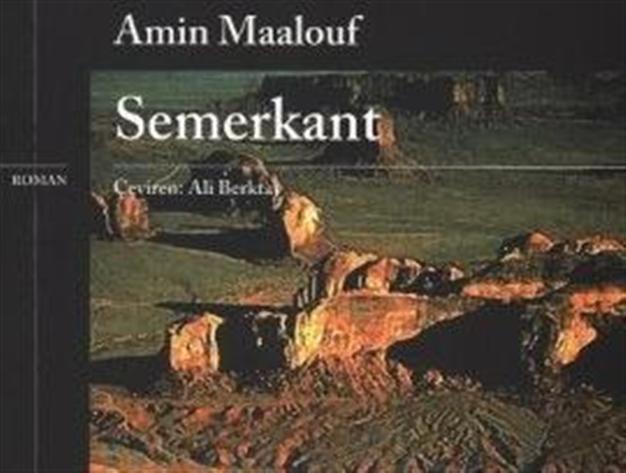Maalouf's 'Samarkand' investigated by Turkish education board
ISTANBUL – Doğan News Agency

Samarkand was first published in 1988 and is considered a modern classic.
French-Lebanese writer Amin Maalouf’s historical novel Samarkand is being investigated by Turkish authorities for allegedly “being vulgar and insulting Islam.”
A complaint was recently lodged by a parent against a history teacher in an Istanbul high school, after the teacher recommended Maalouf’s bestseller to students. The District National Education Directorate immediately launched an investigation into the teacher, who works at the Necip Fazıl Kısakürek High School in the Bahçelievler district of Istanbul.
Samarkand was first published in 1988 and is considered a modern classic.
The head of the first Istanbul branch of the Education and Science Employees Union (Eğitim Sen), Barış Uluocak, said the teacher had recommended Samarkand to make history classes more interesting for students.
According to the report, the child of the parent who lodged the complaint is not registered at the Necip Fazıl Kısakürk High School.
“A parent whose child is not even in that school has issued a written complaint against the teacher for [handing out a book] insulting Oriental culture and Islam, and containing vulgar sections. The District Education Directorate seems enthusiastic about putting this complaint into effect and they have opened an investigation,” Uluocak said today.
Uluocak said the union would be filing a criminal complaint against the education board and the parent’s complaint for slander.
The first half of Maalouf’s is set in Persia (present day Iran) and Central Asia in the eleventh century, and revolves around the scientist, philosopher, and poet Omar Khayyam. It recounts the creation of his Rubaiyat throughout the history of the Seljuk Empire, his interactions with historical figures such as Vizir Nizam al-Mulk and Hassan al-Sabbah of the order of the Assassins, and his love affair with a female poet of the Samarkand court. The second half of the story documents the efforts of a fictional American named Benjamin O. Lesage to obtain the (fictional) original copy of the Rubaiyat, witnessing the historic Persian Constitutional Revolution of 1905-1907 in the process.
